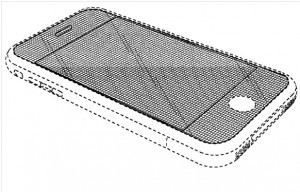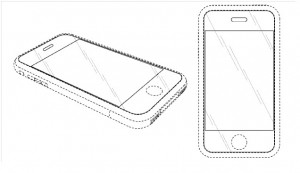APJs Take Literal Approach in IPR Institutions
| June 28, 2013
Patent examiners, either considering original applications or reexamining issued patents, tend to operate with a certain amount of flexibility. For instance, where a reexamination request asserts that a claim is anticipated by a particular prior art reference, an examiner might conclude that the claim is not anticipated, but is obvious over the reference and reject the claim accordingly. The APJs in their inter partes review institution decisions, in contrast, rule on only the validity issues expressly presented to them.
Last week’s institution decision in Medline Industries v. Paul Hatrmann AG, IPR2013-00173, is exemplary. The petition asked for inter partes review, asserting that independent claim 1 and dependent claims 4-7, 10, 14 & 16 were anticipated by the Goates Patent.; it also asserted that several other dependent claims were obvious over Goates in combination with certain secondary references.
The APJs found that Goates met each limitation of claim 1 and the challenged dependent claims, except for the so-called “retaining forces” limitation in claim 1. The APJs therefore denied inter partes review of those claims based on Goates as an anticipatory reference. On the other hand, the APJs concluded that the secondary reference “Karami” did satisfy the “retaining forces” limitation and that there was a “reasonable likelihood” that the secondary reference would have motivated one skilled in the art to modify Goates to meet the requirements of claims 2-3 and 8-9. They therefore ordered inter partes review of dependent claims 2-3 and 8-9 on the issue of whether those claims would be obvious over Goates in combination with the secondary Karami reference.
Twenty Inter Partes Review Petitions Filed, Week of June 17, 2013
| June 24, 2013
Inter Partes review is becoming more and more popular. Last week, review requests were filed against 20 patents. Apple challenged another VirnetX patent (see inter partes review Request Nos. (1)), Aisin Seiki requested review of three American Vehicular Sciences patents related car seat weight sensors (see inter partes review Request Nos. (16), (18) & (19)), and Samsung filed against a U.S. Ethernet Innovations patent (see inter partes review Request No. (20)).
Notably, several requests involved pharmaceutical patents. Accord Healthcare requested inter partes review of an antifoliate patent owned by Ely Lilly (see inter partes review Request No. (3)), and Amneal Pharmaceuticals sought inter partes review of three Supernus patents for tetracycline formulations (see inter partes review Request Nos. (11), (13) & (14)). Pharma patents were relatively rare in earlier inter partes reexamination practice.
Apple Takes another Crack at VirnetX ‘135 Patent, Week of June 10, 2013
| June 17, 2013
VirnetX’s U.S. Patent No. 6,502,135 is the crown jewel of its portfolio of network patents that it has used to obtain a $200 million settlement with Microsoft and a $368.2 million verdict against Apple. Apple has now filed two inter partes review requests challenging the validity of the ‘135 patent (see inter partes review Request No. (9)). The challenge, however, raise an estoppel issue, addressed by Apple in its petitions.
Specifically, Apple acknowledges that it was served with a complaint, which led to Case No. 6:10-cv-00417, in August 2010, that is, more than one year prior to the filing of the instant petition. However, Apple argues that the August 2010 complaint does not foreclose the instant petition under 35 U.S.C. §315(b), because Apple was served with a new complaint in December of 2012, which matured into Case No. 6:13-cv-00211-LED. Section 315(b) reads, “[a]n inter partes review may not be instituted if the petition requesting the proceeding is filed more than 1 year after the date on which the petitioner, real party in interest, or privy of the petitioner is served with a complaint alleging infringement of the patent” (emphasis added). Emphasizing the plain wording of §315(b), Apple insists that as long as a petition for inter partes review is filed within one year of the date any complaint alleging infringement of the patent is served on the petitioner, the petition is timely.
Instructions from the APJs on Amending Claims in Inter Partes Review
| June 16, 2013
Last week in a Decision in Idle Free Systems v. Bergstrom, IPR 2012-00027, the APJs continued their effort to instruct practitioners on acceptable procedures in inter partes review proceedings, in this case the proper steps for amending claims. The specific outcome of the Decision – in essence to allow the patentee a second chance to amend its claims – is of little general interest. What is of interest is the APJ’s statement of their expectations of patent owners in future cases.
APJs Strictly Apply Joinder Rule in Post-Grant Review
| June 11, 2013
Last week in U.S. Bancorp v. Retirement Capital Access Management, CBM2013-00014, the petitioner asked the APJs to add two additional companies to the review as petitioners and real parties-in-interest. The two companies were defendants accused in a District Court action of infringing the patent under review, but they had not themselves requested post-grant review. The APJs denied the petitioner’s request for joinder.
The APJs began their analysis by citing the statutory basis for joinder:
If more than 1 petition . . . is properly filed against the same patent and the Director determines that more than 1 of these petitions warrants the institution of a . . . review . . . the Director may consolidate such reviews into a single . . . review.
JDS Uniphase Seeks Inter Partes Review of Two Optical Switching Patents, Week of June 3, 2013
| June 10, 2013
JDS Uniphase requested inter partes review of two Fiber, LLC. optical switching apparatus patents (see inter partes review Request Nos. (1) & (11)). Fiber has sued Ciena and NEC for infringement of the patents. The latter two companies are presumably JDS customers.
IBS requested inter partes review of Illumina Cambridge’s U.S. Patent No. 7,057,026, that claims labeled nucleotides (see inter partes review Request No. (3)). IBS had previously filed a petition requesting inter partes review of the ‘026 patent (IPR2013-00128). The previous petition relied on a different primary reference than last week’s petition.
The number of inter partes review requests continues to rise, with 13 new requests being filed last week.
Apple Wins Stay of Infringement Action in Favor of PTO’s Post-Grant Review of Covered Business Method Patent
| June 7, 2013
Judge Donnetta Ambrose of the Western District of Pennsylvania has stayed the infringement action SightSound Technologies v. Apple, 2013 U.S. Dist. LEXIS 79319, pending resolution of the PTO’s post-grant review of the patent in issue. Judge Donnetta began her analysis by citing the AIA standard for considering a stay request:
1) whether a stay, or the denial thereof, will simplify the issues in question and streamline the trial;
2) whether discovery is complete and whether a trial date has been set;
3) whether a stay, or the denial thereof, would unduly prejudice the nonmoving party or present a clear tactical advantage for the moving party; and
4) whether a stay, or the denial thereof, will reduce the burden of litigation on the parties and on the court.
Will AIA Post-Issuance Cases Increase ITC’s Popularity?
| June 6, 2013
In recent years, District Court judges have tended to favor stays of infringement actions pending completion of the PTO reexamination proceedings of the patents-in-suit. Anecdotally, at least, that tendency to stay has increased for the new AIA inter partes review and covered business method post-grant proceedings.
By contrast, the U.S. International Trade Commission has resolutely refused to suspend its investigations to allow reexaminations at the Patent Office to play through. The Commission’s attitude is based largely on that fact that it, unlike the District Courts, has no authority to award money damages to patentees at the end of its investigations – only prospective relief (by an exclusion order and/or a cease and desist order) is available at the ITC.
Reexamination Requests Filed Against Two Apple iPhone Design Patents
| June 4, 2013
Ex parte reexamintion requests were filed Friday against Apple’s D618,677 and D618,678.
The ‘677 patent was one of the Apple patents in its successful case last year against Samsung in the Northern District of California. And ALJ Pender at the U.S. International Trade Commission has determined that Samsugn infringes the ‘678 patent, a determination now before the Commission for review.
It is not yet clear from the PTO files who filed the requests, and in fact, ex parte reexamination might have been chosen to avoid disclosure of the filer’s identity. Inter partes review is normally the weapon of choice for companies like Samsung.
Drawings from the two patents are shown below.
The ‘677 Patent

The ‘678 Patent

Guidance from the Board on Claim Amendments in Inter Partes Review
| June 4, 2013
In the earlier days of the new AIA post-issuance proceedings, the Patent Trial & Appeal has written a series of decisions, intended to explain to practitioners of the procedures to be followed in those proceedings.
Yesterday, in Nichia v. Emcore, IPR2012-00005 (Paper 27), the Board summarized what is required of a patent owner hoping to amend its claims. The Petitioner Nichia had initiated a conference call with the Board and the Patent Owner Emcore to clarify whether the latter had complied with its duty to “confer with the Board” before filing its motion to amend its claims.
The Board determined that Emcore had complied with that duty, noting (1) that Emcore had filed notice indicating that it intended to file a motion to amend, and (2) that the Board had issued an order from an earlier conference call in which the patent owner was cautioned that it “must explain how the proposed substitute claims obviates the ground of unpatentability authorized in this trial and clearly identify where in the written description support can be found.” In the present order, the Board also indicated that Emcore must avoid submitting “an unreasonable number of substitute claims … .”



